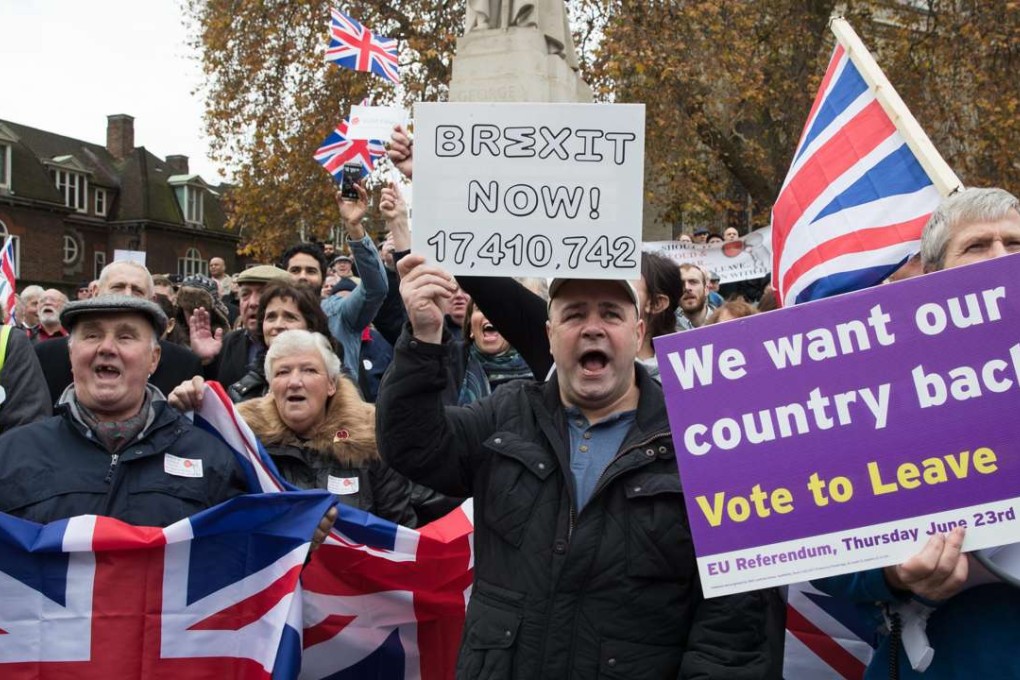How fear drove voters towards Trump and away from the EU
Danny Quah and Kishore Mahbubani say a shared sense of unease at losing control of their own destiny amid a shifting global order, rather than inequality, motivated voters on either side of the Atlantic

The big question in Asian countries right now is what lesson to take from Donald Trump’s victory in the US presidential election, and from the UK’s Brexit referendum, in which British voters opted to leave the European Union. Unfortunately, the focus is not where it should be: geopolitical change.
Instead, for the most part, economic narratives have prevailed: globalisation, while improving overall well-being, also dislocates workers and industries, and generates greater income disparity, creating the anxious electorates that backed Brexit and Trump. An alternative narrative asserts that technological advances, more than globalisation, have exacerbated economic inequalities, setting the stage for political disruptions in developed countries.

For Asian countries, the policy prescription is clear: take care of disadvantaged populations and provide retraining and new employment opportunities for displaced workers.
Even if countries ensured social mobility for all citizens, the forces fuelling public dissatisfaction around the world today would remain
Of course, all societies should look out for their poorest members and maximise social mobility, while also rewarding entrepreneurship and challenging people to improve their lot. But focusing on such policies would not address the public disaffection underlying the populist uprising, because inequality is not its root cause. Feelings of lost control are.
